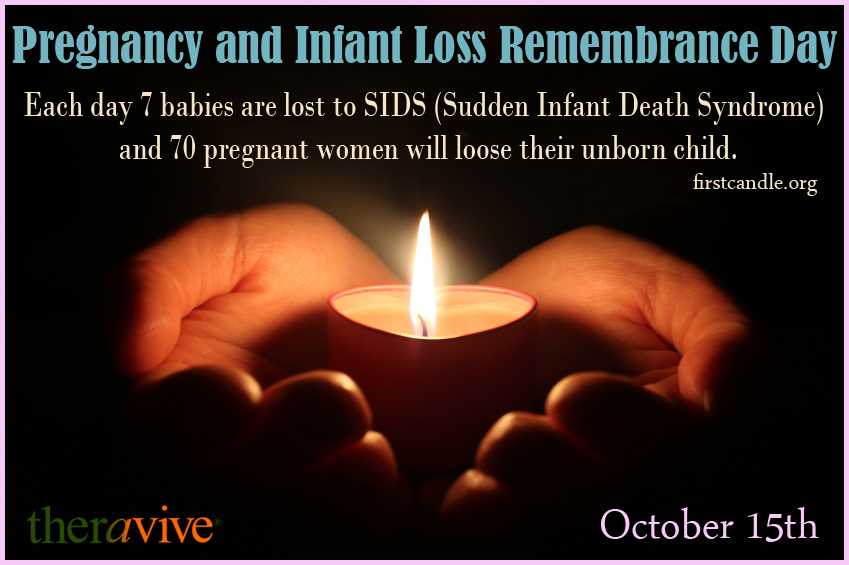
Words are inadequate to describe the myriad of feelings a parent experiences after the loss of a child. In recent years, society has become more adept at recognizing that fathers share this devastation, and men have become more open about their grief. There is little doubt that the lives of both parents are changed forever by the experience of child loss.
This is complicated by the fact that bereaved parents who are coping with their own grief are not as emotionally available to support each other (and surviving children) as they would be otherwise. It is a time when parents must find support from others, and support each other in the best way possible. Fortunately, there are many resources available in communities and online that provide support during this difficult time. Here are some basic care tips that will help you manage the grief process.
Self Care
· Physical – Try not to skip meals, and eat a balanced diet. Protein is a precursor to vital neurotransmitters that regulate our emotions, including dopamine and serotonin. Eat 3-4 ounces of protein at every meal; try to eat the protein before other foods so it is absorbed by the brain first.
Avoid caffeine, other stimulants and food additives that are known to deplete precious brain chemicals. Instead of caffeine, eat protein for energy as a snack. Take a good multi-vitamin, if needed. Sleep may be disrupted; if this goes on for more than two weeks, talk to your medical provider.
· Emotional – Before you leave the hospital, request a referral to a support group and/or counselors who specialize in child loss or grief. It is really not a time to wait and see if you will need help coping – be proactive. This is critical for those who have other children to care for.
Finding support and actively expressing your thoughts, fear, beliefs and feelings will help you be more emotionally available for your spouse/partner and child(ren). Couples need to reach out to others for support, as each person is grieving and has limited emotional resources at this time.
· Spiritual – If you are involved in a spiritual community, reach out to your minister, priest or rabbi. Allow them to help you understand your loss within the context of your spiritual beliefs
· Social – Structure and normalcy are critical to coping well with grief. As difficult as it may be, try to maintain some structure – especially if you have children. Mealtimes, getting dressed daily and other normal daily routines can prevent sadness from turning into depression.
Although you may not be ready to socialize for a while, remember that when you return to your usual social activities, people may not know what happened. Those who know, may not know what to say.
Decide ahead of time what you will say when you see people. Make it a brief statement and only share what you feel comfortable saying. It is okay to say something like: ‘I realize it is hard for people to know what to say when someone loses a child. I appreciate your thoughts (prayers) for our family. We are coping as well as possible. I am (am not) up to talking about it more right now.’
If you want to talk about it, or are willing to answer questions, let people know. This will help them feel less awkward. If you don’t want to talk about it, saying that also helps people know how you want them to approach the issue. If you are too distraught to discuss it at all, perhaps a friend can let people know that in advance so that you and they will be prepared.
· Familial – Let family members know what you want/need from them. Many bereaved parents find it difficult when people avoid the topic and they really want/need to talk about it. Tell people what you want from them, and realize this may change over time
Enlist support from family members if you need help caring for your other child(ren). It may be something simple, like driving your child(ren) to outings or to/from school. If you are having trouble managing daily chores and household duties, let people know how they can help. Perhaps you just need some down time, or your child(ren) need some time away from the home. If you are not one to ask for help, it may be a time to overcome that.
· Occupational – Take as much time as you need away from work – this includes dads. If you need to use FMLA, talk to HR about the details. When it is time to return, decide what you are going to say to people before you return, and stick to your script. Again, let people know if you want to talk about it, or prefer not to discuss the loss so they will know how to approach you.
Community Resources
· Medical Providers – Your doctor, nurse, midwife and hospital staff will have resources to share with you after the loss of a child. Call on them when you need support or have questions. There are often special programs within hospitals or county health departments to help grieving parents and families that are free of charge
· Support Groups – Local agencies, some nonprofit and others affiliated with hospitals, have trained staff and volunteers to facilitate support groups for parents and siblings after the loss of a child. If you live in an isolated area with limited resources, your doctor should know of any local programs. Some may be in-home programs instead of support groups – just ask. If there are no local resources, see the information below for online resources.
· Counseling – Many doctors and most hospitals work with professional counselors, some on staff and others in the community or churches/synagogues, who specialize in loss and grief. Ask for a referral.
· Social Service Organizations – There are usually non-profit and government agencies in all communities that serve families who have lost a child. Ask your medical provider, hospital or call 211 for the United Way resource line to request a list of providers
Online Resource
· MISS Foundation - support groups are offered around the world by trained, volunteer facilitators and co-facilitators. Meetings are offered free of cost to bereaved families. If you are interested in a one-on-one HOPE Mentor match instead of a support group, please click here.
· Compassionate Friends - The Compassionate Friends is about transforming the pain of grief into the elixir of hope. It takes people out of the isolation society imposes on the bereaved and lets them express their grief naturally. With the shedding of tears, healing comes. And the newly bereaved get to see people who have survived and are learning to live and love again." There are chapters in most states, and the organization offers grief support for siblings and grandparents.
· GriefNet.org– Lists online and community resources for parents who have lost a child.
· SupportGroups.com– an online community with support groups for over 200 different topics.
_______________________________________________________________________________________________________
"Loss Of An Unborn Child." The Gief Channel. N.p., n.d. Web. 07 Sept. 2013.
"Grieving the Loss of a Child." Cancer.Net. American Society of Clinical Oncology, n.d. Web. 10 Sept. 2013.
About the Author
 LuAnn Pierce, LCSW
LuAnn Pierce, LCSWI am a clinical social worker, therapist and writer. Currently, I offer online therapy and coaching services to people in Colorado and Wyoming. As a provider for the CO Department of Vocational Rehabilitation and the National MS Society, my expertise in counseling people who have disabilities and chronic illness is considerable. I have written for About.com, DailyRx.com, Theravive.com, GoodTherapy.org, SelfHelpMagazine.com and contribute to several other online health and mental health sites.
Office Location:
19th & Dahlia
Denver, Colorado
80220
United States
Phone: 303-910-2425
Contact LuAnn Pierce, LCSW
Professional Website:
http://HireASocialWorker.com